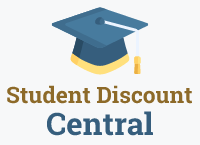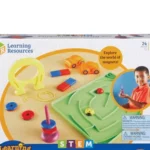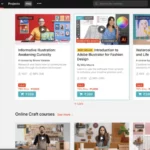Exploring Online Resources for Free or Discounted Educational Materials
In today’s digital age, students have the incredible opportunity to access a wealth of educational resources online. With the availability of free or discounted textbooks, student discounts from telecommunication and internet providers, temporary access to digital libraries, and virtual resources and online courses, the possibilities for enhancing learning experiences are endless. This article delves into the various avenues through which students can access these resources, highlighting the importance of prioritizing essential online activities and sharing resources responsibly. By embracing these opportunities, students can make the most of their free internet access and embark on a journey of lifelong learning.
Contents
- Accessing Free or Discounted Textbooks
- Student Discounts and Free Services from Telecommunication and Internet Providers
- Temporary Access to Digital Libraries and Online Learning
- Discounted Storage and Moving Services
- Free Access to Virtual Resources and Online Courses
- Conclusion
-
Frequently Asked Questions
- 1. How can I access free or discounted textbooks?
- 2. Are there any student discounts or free services from telecommunication and internet providers?
- 3. How can I temporarily access digital libraries and online learning?
- 4. Are there any discounted storage and moving services available?
- 5. Can I get free access to virtual resources and online courses?
- 6. How can I find the best deals on educational materials?
- 7. Are there any student-exclusive deals for online learning platforms?
- 8. How can I make the most of my free internet access for educational purposes?
- 9. Are there any scholarships or grants available for accessing educational resources?
- 10. How can I ensure responsible sharing of resources with my peers?
- References
Accessing Free or Discounted Textbooks

Accessing Free or Discounted Textbooks
One of the challenges students face is the high cost of textbooks. However, there are several ways to access free or discounted textbooks. One option is to download PDF or ebook versions of textbooks, which can be found on various websites. Another option is to check for college or university resources, such as library interlibrary systems or student book exchange programs. Additionally, websites like Bartleby.com, Project Gutenberg, and ManyBooks offer free or discounted ebooks. Students can also consider renting textbooks from Amazon or Barnes & Noble, or using the Freetextbooks app to get a percentage of their books for free. Another option is to borrow textbooks from friends and have them scanned at a local copy place. By exploring these avenues, students can save money and access the necessary resources for their education. (source: [best-deals-textbooks-study-materials](/best-deals-textbooks-study-materials/))
1. Download PDF or Ebook Versions
When it comes to accessing educational materials, one convenient option is to download PDF or ebook versions. This allows students to have the necessary resources at their fingertips, whether they prefer reading on a laptop, tablet, or mobile phone.
One website that offers a wide range of free PDF books is PDF Books World. It provides a vast collection of academic textbooks, fiction and non-fiction ebooks, and novels. To access the content, users need to register for a free membership. The website has a user-friendly interface and responsive web design, making it easy to search for specific titles, authors, or subjects. PDF Books World is compatible with various electronic devices and screen sizes, ensuring a seamless reading experience.
Another platform to consider is Free-Ebooks. This website not only offers PDF versions but also provides ebooks and textbooks in EPUB, Kindle, and TXT formats. Users can choose from different categories such as fiction, non-fiction, academic textbooks, classics, and children’s audiobooks. Free-Ebooks allows a preview of the content before downloading, giving users a chance to assess the suitability of the book. Registration is required, and members can download up to five books each month for free.
For those interested in public domain books, Free eBooks is a great resource. Their collection covers various categories, including history, classics, children’s audiobooks, non-fiction, fiction, and textbooks. The ebooks are available in high-quality PDF format, with features like legible font sizes, table of contents, illustrations, and internal reference links. Registration is free and necessary to download the materials.
By utilizing these platforms, students can access a wide range of educational materials in PDF or ebook format. Whether you’re looking for academic textbooks, fiction novels, or non-fiction works, these websites offer a wealth of resources to enhance your learning journey.
To find out more about discounted educational resources, you can check out our article on the best platforms for discounted educational resources.
2. Check for College or University Resources
When it comes to finding free or discounted educational materials, it’s important to explore the resources available through your college or university. These institutions often provide a range of resources that can support your learning journey. Here are some ways to tap into these resources:
1. Library Resources: Your college or university library is a treasure trove of educational materials. Access their online catalog to search for textbooks, journal articles, and other resources that may be available digitally. Many libraries also offer interlibrary loan services, allowing you to request materials from other libraries if they are not available in your own.
2. Course Materials: Check with your professors or department to see if they have any supplementary materials or textbooks that they can provide to students at a discounted or free rate. Some departments may have their own libraries or repositories where you can access course-specific materials.
3. Open Educational Resources (OER): Many colleges and universities are embracing the use of Open Educational Resources, which are freely available educational materials that can be used, adapted, and shared. Your institution may have a dedicated OER initiative or a repository where you can find OER materials for your courses.
4. Student Organizations and Clubs: Some student organizations or clubs may have resources or study materials that they share with their members. Check if there are any relevant student groups that can provide additional resources or support for your academic pursuits.
5. Academic Support Services: Your college or university may have academic support services that offer tutoring, study guides, or supplemental materials for specific subjects. These resources can be valuable in supplementing your learning materials.
By checking for college or university resources, you can access a wide range of educational materials that can supplement your learning experience. Remember to utilize these resources responsibly and respect any usage guidelines or restrictions that may be in place.
Student Discounts and Free Services from Telecommunication and Internet Providers

In addition to accessing free or discounted textbooks, students can also take advantage of special offers and services provided by telecommunication and internet providers. These discounts and free services aim to ensure that students have affordable and reliable internet access, allowing them to fully engage in online learning and educational activities. Here are some of the benefits available to students:
1. Monthly Discounts on Broadband Internet Service: Through the temporary program administered by the Federal Communications Commission (FCC), eligible households can receive a monthly discount of up to $50 on broadband service. For households on qualifying Tribal lands, the discount can be up to $75 per month.
2. Associated Equipment Discounts: Alongside the monthly discount, eligible households can also receive a discount on associated equipment, such as modems. This ensures that students have the necessary tools to connect to the internet and participate in virtual learning.
3. Device Discounts: Participating broadband providers may offer a one-time discount of up to $100 for a connected device, such as a laptop, desktop, or tablet computer. Eligible households can contribute between $10 and $50 towards the cost of the device to receive this discount.
To apply for these discounts, eligible families of K-12 students and Pell Grant recipients can do so online, via mail, or through a participating service provider. It’s important for students to explore the available options and find participating internet service providers in their area by using the Companies Near Me tool.
By taking advantage of these student discounts and free services, students can ensure they have reliable internet access for their educational needs. This not only supports their academic success but also promotes digital literacy and empowers the next generation of leaders and innovators.
Please note that these discounts and services are part of the broader effort by companies to assist in the transition to virtual learning during the COVID-19 outbreak. To further explore other student discounts and saving opportunities in educational resources, you can check out our list of top websites for student discounts.
Remember, maximizing the benefits of free internet access and seeking further financial support can enhance students’ learning experiences and set them up for success.
Temporary Access to Digital Libraries and Online Learning

In the midst of the current pandemic, many students are facing challenges when it comes to accessing physical libraries and resources. However, there are several digital libraries and online learning platforms that are offering temporary access to their vast collections of educational materials. These resources are invaluable for students who are looking to continue their studies and access necessary course materials from the comfort of their own homes.
One such resource is the HathiTrust Digital Library’s Emergency Temporary Access Service (ETAS). This nonprofit library service provides free access to over seven million digital versions of copyrighted materials and prints that students would normally find in their university libraries. With ETAS, students have access to three times the amount of content that fills an entire university library. This service has been widely used by over 170 campuses in the U.S. and Canada, connecting millions of library users.
Another digital library offering temporary access is the Citywide Digital Library provided by the New York City Department of Education. Students can log in using their school credentials and instantly access hundreds of ebooks and audiobooks on any device. This 24/7 accessible digital collection is a convenient and efficient way for students to continue their reading adventures without the need for physical books.
Additionally, there are online learning platforms that are offering temporary access to their educational resources. For example, Sophia Learning, a platform sponsored by Strategic Education, is providing free access to their online education platform to all students affected by the coronavirus. Students can take ACE-recommended online courses for college credit through July 31, 2020. This opportunity allows students to continue their education and earn credits from the safety of their homes.
Temporary access to digital libraries and online learning platforms is a crucial resource for students during this challenging time. These resources provide a wide range of educational materials, from textbooks to online courses, that can support students in their academic pursuits. By taking advantage of these resources, students can continue their studies and make the most of their time at home.
Discounted Storage and Moving Services

When it comes to the logistics of moving or storing belongings, students can also find discounted services to help make the process more affordable. Many companies offer special student discounts on storage units and moving services. These discounts can help alleviate some of the financial burden associated with relocating or finding a temporary storage solution.
By taking advantage of these discounted services, students can save money and ensure a smooth transition during times of relocation, whether it be moving to a new dorm room or apartment, or needing a place to store belongings during breaks or study abroad programs.
Some storage companies even offer additional perks for students, such as free moving supplies or the option to rent storage units for shorter periods of time. This flexibility can be especially beneficial for students who may only need storage for a few months or during summer breaks.
To find the best deals on discounted storage and moving services, students can visit websites that specialize in comparing discounts for different companies. These websites provide a comprehensive list of available discounts, allowing students to easily compare prices and services to find the most suitable option for their needs.
By taking advantage of discounted storage and moving services, students can save money and reduce the stress associated with the logistics of moving and storing belongings. With the financial burden eased, students can focus more on their studies and academic pursuits.
Link: If you’re interested in finding more ways to save money as a student, you can check out our article on top websites for student discounts.
Free Access to Virtual Resources and Online Courses
In addition to accessing free or discounted textbooks, students also have the opportunity to explore a wide range of virtual resources and online courses. These resources provide a wealth of educational materials and learning opportunities that can enhance the learning experience.
One valuable resource is virtual learning platforms such as Khan Academy, Coursera, and edX. These platforms offer free courses in various subjects, allowing students to supplement their formal education and explore new interests. Students can access lectures, quizzes, and interactive exercises to deepen their understanding of the topics they are studying. [Link to /comparing-membership-subscription-discounts-students/]
Another resource is open-source textbooks, which are available on websites like OpenStax, Bookboon, and the Open Textbook Library. These textbooks are high-quality and free, reducing the cost of educational materials for students. They often include ancillary materials such as multimedia, lecture slides, and lab manuals, providing a comprehensive learning experience. [Link to /tips-saving-money-educational-resources-college/]
Collaborative tools for group projects also play a crucial role in online learning. Platforms like Google Workspace for Education and Microsoft Office 365 Education offer a suite of collaboration tools, enabling students to work together on projects, share files, and communicate effectively. These tools foster collaboration and teamwork, essential skills for success in the digital age.
For students in need of additional academic support, online tutoring services like Tutor.com and Skooli offer free or low-cost tutoring services. These services provide one-on-one support in various subjects, helping students clarify concepts, work through challenging problems, and improve their academic performance.
By taking advantage of these free virtual resources and online courses, students can broaden their knowledge, explore new subjects, and deepen their understanding of the topics they are studying. The availability of these resources online allows students to access them at any time, enabling the possibilities of lifelong learning.
Conclusion
In conclusion, the exploration of online resources for free or discounted educational materials has opened up a world of possibilities for students. By utilizing PDF or ebook versions of textbooks, checking for college or university resources, and taking advantage of student discounts and free services from telecommunication and internet providers, students can access high-quality educational materials at a fraction of the cost. Additionally, temporary access to digital libraries and online learning platforms offers a wealth of information and courses to further enhance the learning experience.
The global pandemic in 2020 has further accelerated the shift towards online learning, resulting in an unprecedented increase in the number of students engaging in distance education. With over 400 million students now enrolled in online courses, it is clear that online learning has become a go-to method of education. This shift has not only provided increased access to education but has also opened up new opportunities for individuals who previously faced barriers to education.
Furthermore, the availability of discounted storage and moving services has made it easier for students to transition to online learning and access necessary resources. By taking advantage of these services, students can seamlessly adapt to the changing educational landscape and ensure they have all the tools they need for success.
Lastly, free access to virtual resources and online courses has revolutionized the way students learn and acquire knowledge. With a plethora of courses and resources available at their fingertips, students can explore new subjects, enhance their skills, and pursue their passions outside of traditional educational settings.
It is important to note that the findings and recommendations discussed in this article are based on specific contexts and may not be applicable universally. Further research and surveys should be conducted to ensure the generalizability of these findings. Nonetheless, the advantages, limitations, and recommendations for improvement in online learning highlighted in this article provide valuable insights for educators and institutions striving to enhance the quality of the educational process in the online environment.
By embracing the opportunities presented by online resources, students can foster a lifelong love for learning, expand their knowledge horizons, and navigate the digital age with confidence. As technology continues to evolve, it is crucial that students, educators, and institutions adapt and embrace the possibilities that online resources offer. Together, we can create a future where education is accessible to all, regardless of geographical location or socioeconomic background.
Frequently Asked Questions
1. How can I access free or discounted textbooks?
To access free or discounted textbooks, you can download PDF or Ebook versions from online platforms or check if your college or university offers any resources.
2. Are there any student discounts or free services from telecommunication and internet providers?
Yes, many telecommunication and internet providers offer student discounts and free services. It’s worth checking with your provider to see if they have any special offers for students.
3. How can I temporarily access digital libraries and online learning?
You can gain temporary access to digital libraries and online learning platforms by signing up for free trials or utilizing resources offered by educational institutions or organizations.
4. Are there any discounted storage and moving services available?
Yes, there are discounted storage and moving services available for students. Some companies offer special rates or promotions specifically for students.
5. Can I get free access to virtual resources and online courses?
Yes, there are many virtual resources and online courses that are available for free. You can explore platforms and websites that offer free educational content.
6. How can I find the best deals on educational materials?
To find the best deals on educational materials, you can compare prices from different online retailers, utilize coupon codes or discounts, and take advantage of seasonal sales or promotions.
7. Are there any student-exclusive deals for online learning platforms?
Yes, some online learning platforms offer student-exclusive deals or discounts. It’s worth checking with the platforms directly or searching for student discounts on educational websites.
8. How can I make the most of my free internet access for educational purposes?
To make the most of your free internet access for educational purposes, you can create a schedule or study plan, utilize online resources and educational platforms, join online study groups or forums, and stay organized with digital tools.
9. Are there any scholarships or grants available for accessing educational resources?
Yes, there are scholarships and grants available for accessing educational resources. You can research and apply for scholarships specifically designed for educational materials or online learning.
10. How can I ensure responsible sharing of resources with my peers?
To ensure responsible sharing of resources with your peers, you can encourage them to access resources through legitimate channels, respect copyright and licensing agreements, and promote ethical use of educational materials.







